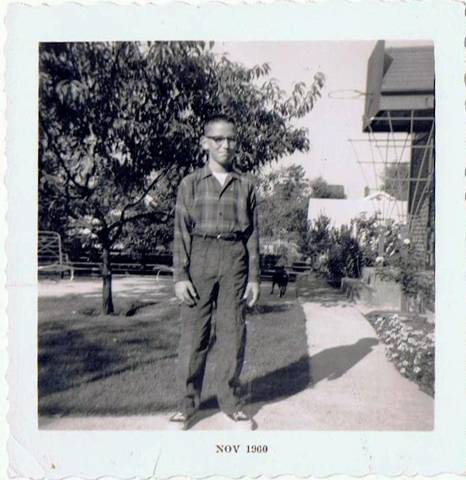The Writer's Mailbag: Installment 182
Merry Christmas
The Mailbag cannot be stopped!
But before you read today’s mail, take a moment and receive a gift from me, to you . . . Merry Christmas to all of you, a verbal gift of love. No matter what your religious leanings may be, you can certainly accept my love and gratitude, so I send them both to you.
And now the mail!

SERIES
From Paul: “What do you think of writing a series of novels with the same characters? Is it better to do that, or write stand-alone novels?”
Paul, I think that’s completely up to you. I say that with a couple of series under my belt, the latest of which is the “Shadow” series of paranormal thrillers. I’m a big fan of series. My favorite mystery writers all write series using the same characters, and I much prefer to read a series rather than a stand-alone.
Having said that, I believe many books are not suited for a series, and I believe each writer has to make that decision on their own.
Writing a series is, in one way, much easier. Character development, I find, is easier. There are landmines to watch out for, though. Keeping track of all that went before calls for some serious organization skills. Foreshadowing becomes a bit more difficult with a series.
So, bottom line, it’s completely your call.

Proper Wording for Novels Set in the Past
From Linda: “Bill, you are a very prolific writer. Even without the weekly Mailbag series, you have written I've-lost-count-of how many novels, how many mini-series on HP, etc. But when you think back to what you have done, a few are cast in the 1800's, but the majority of your writing is in present time. I've always admired the writing you have done from earlier times (the letters from the Civil War and the Oregon Trail series on HP) but do you think you could write an entire novel in another century? Think about that for a moment. The reason I ask this is that in my opinion American English has become very informal in the past 100 years. We use contractions and slang with wild abandon. When I write food articles for Hub Pages I strive to use a "conversational" style, and so my writing it littered with contractions.
“But what if you are writing an entire novel from another century? No contractions. No slang. I can easily read my articles on HP and sense if they feel "real" or "stilted", but when I wander off into more formal speech, I wonder if what I am putting on paper flows, sounds genuine, or if it just totally sucks. And then (if you really want to make yourself crazy) worry about whether the words you are using were even a concept in that century. You can't make any reference (even figurative) to technology. Adjectives such as "electrifying" could not be used. I'm going crazy trying to write something that is set in the 1st century A.D. A penny for your thoughts (the coin is in the mail).”
Well, Linda, although the problem you pointed out is a complex one, the question you actually asked me is a simple one. Do I think I could write an entire novel set in the past? Yes, Linda, I do!
Now let’s elaborate . . .
What you point out is exactly true. It is no easy task writing a novel set hundreds of years in the past and doing it with linguistic accuracy. I agree that our language has become much more relaxed and, to use one of my favorite words, bastardized. So although I know I could do it, it would still take a great deal of research and great care to write it. I don’t know if I have the desire to go to all that work.
The short stories you referred to, the ones I wrote set in Civil War days, are in part the result of reading actual letters written back then by soldiers. The language is surprisingly flowery but also very stilted, and it takes some practice to do that properly.
So, in summary, yes I could but no, I won’t!

When to Publish on HP
From Maxine: “Bill, with the holidays upon us, I remember a question I meant to ask on Thanksgiving. Does it make any difference to our views if we publish articles during the holiday seasons? Are we better off waiting for the holidays to pass before publishing again?”
Thanks, Maxine (that’s not really her name, so I cleverly gave her an alias because I like this question).
There are two ways to look at Maxine’s question. If she is just concerned with garnering views from the HP community then I would suggest waiting until the holidays are over. Views definitely fall off over Christmas, which is only natural. People are busy and wrapping presents is more important than reading a Mailbag installment.
But, if Maxine is talking about overall views from the entire internet, then it is my opinion that it makes very little difference when you publish because Google doesn’t give a damn about holidays. It takes three months or more for any article to filter its ways through the Google maze, and that journey is not affected by the posting date. So if you are a “big picture” sort of person, then by all means post any old time you want. If you are a HubPages sort of girl, I suggest you hold off until the first of the year.
But seriously, I could be all wet with that opinion.
This is slightly related to another issue, and we might as well tackle it now since I don’t have any other questions for today’s Mailbag.
If you are doing time-sensitive articles on HP, like a recipe for baking the perfect Christmas ham, and you are interested in gathering the most views outside of HP in that year, then you really should post your Christmas baking article at least three months in advance of Christmas and preferably earlier than that. This is a tough practice to teach oneself, but it will pay dividends in the long run. Thanksgiving articles should be posted during the summer….Christmas in the early fall….Valentines Day in November….4th of July articles in April or May.
And if you are pitching an article to the editor of a magazine, back that time table up even more, back to at least six months, because that’s how early magazines plan their future issues.
Just something to keep in mind!
The End Is Nigh
And so we tuck 2017 to bed, and welcome a new baby to the world. Hopefully 2018 will be a year of blessings and great rewards for you all, but more importantly I hope 2018 is a year filled with love for you all.
Love begins in each of us. I firmly believe that, and I learned it from my wife, Bev. I may not be able to change the world, but I sure as hell can change my immediate surroundings, and help to foster change in my community.
It begins with me!
Love to you all, and thank you for sticking with me through 2017!
2017 William D. Holland (aka billybuc)
“Helping writers to spread their wings and fly.”








